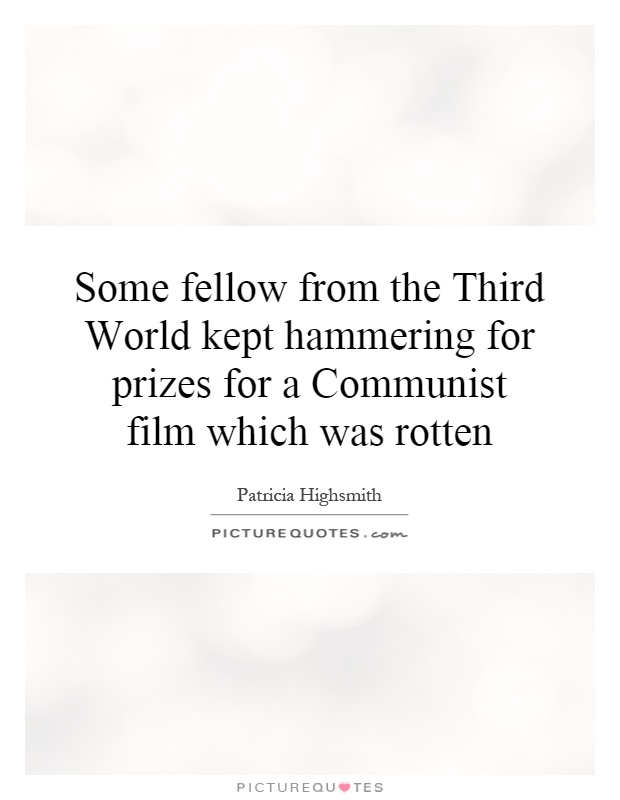Some fellow from the Third World kept hammering for prizes for a Communist film which was rotten

Some fellow from the Third World kept hammering for prizes for a Communist film which was rotten
Patricia Highsmith, the renowned American author known for her psychological thrillers and suspenseful novels, was not one to shy away from controversial topics or political commentary in her work. In her writing, she often explored themes of morality, guilt, and the darker aspects of human nature. It is no surprise then that she would have strong opinions on the subject of a Communist film being promoted for prizes.The quote, "Some fellow from the Third World kept hammering for prizes for a Communist film which was rotten," suggests a sense of frustration and disdain towards the film in question. Highsmith's use of the word "rotten" implies that she found the film to be of poor quality or lacking in artistic merit. It is possible that she viewed the film as propaganda or as promoting a political ideology that she did not agree with.
Highsmith's own political views were complex and often contradictory. She was known to have sympathized with socialist and leftist causes, but she also had a deep distrust of authority and a disdain for conformity. It is possible that she saw the promotion of a Communist film as an attempt to manipulate or control public opinion, which would have gone against her own beliefs in individual freedom and autonomy.
The mention of the filmmaker being from the Third World adds another layer of complexity to the quote. Highsmith may have been critical of the film not only for its political content but also for its perceived lack of artistic merit or originality. She may have felt that the filmmaker was using their background or identity as a way to garner sympathy or attention, rather than relying on the quality of their work.
Overall, the quote "Some fellow from the Third World kept hammering for prizes for a Communist film which was rotten" reflects Highsmith's sharp wit and keen eye for hypocrisy. It is a reminder that art and politics are often intertwined, and that the promotion of a film should be based on its merit rather than its political message.












 Friendship Quotes
Friendship Quotes Love Quotes
Love Quotes Life Quotes
Life Quotes Funny Quotes
Funny Quotes Motivational Quotes
Motivational Quotes Inspirational Quotes
Inspirational Quotes